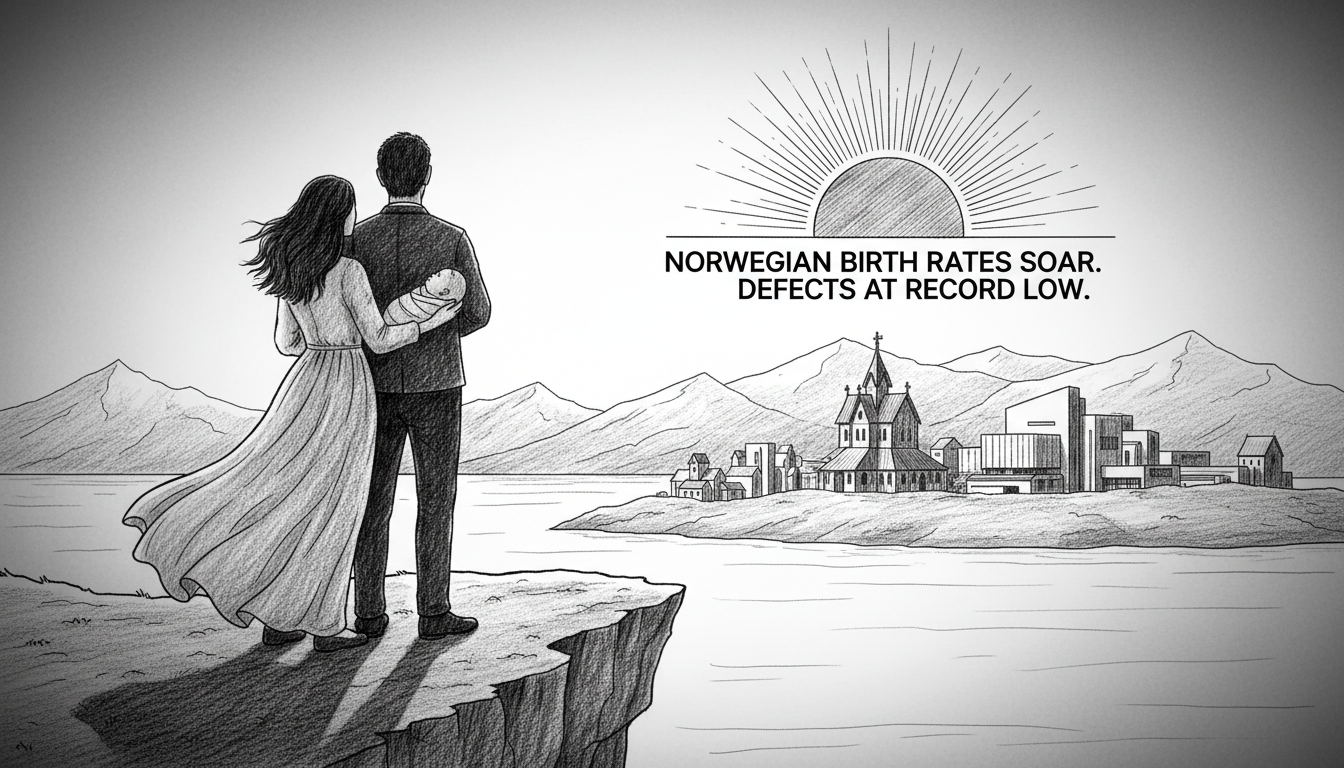Norway recorded a notable increase in births last year with 54,472 children born in Norwegian maternity institutions. This represents 2,434 more births than the previous year. The numbers come from the Medical Birth Registry and show a reversal of recent trends.
At the same time, the proportion of pregnancies with birth defects fell to its lowest level since 2000. Only four percent of all registered pregnancies received a birth defect diagnosis. Birth defects include serious conditions affecting the heart, brain, or facial features like cleft lip and palate that require medical intervention.
Medical professionals note this positive development coincides with several important factors. More pregnant women now take folic acid supplements, which prevent certain types of birth defects. Improved early detection methods also allow for earlier identification of potential issues during pregnancy.
"We've had several years with declining birth numbers, but the trend appears to have reversed," said Dr. Liv Cecilie Vestrheim Thomsen from the Medical Birth Registry in a statement. Most children were born during the months of May through August last year.
The statistics reveal another important pattern. More pregnant women carrying fetuses with serious defects now choose to terminate their pregnancies. For major birth defects, the termination rate increased from 12.8 percent in 2010 to 27.8 percent last year. The rate was even higher for Down syndrome pregnancies, with 75.2 percent ending in termination compared to 36.1 percent in 2010.
This data reflects Norway's comprehensive healthcare system and evolving social attitudes. The country provides extensive prenatal care and genetic counseling services. Norwegian society generally supports reproductive choice while maintaining strong social safety nets for children with special needs.
The rising birth rate suggests Norwegian families feel increasingly confident about their economic prospects. Norway's generous parental leave policies and subsidized childcare likely contribute to this positive trend. The combination of medical advances and social support systems creates an environment where parents can make informed choices about their pregnancies.
These developments matter for international observers studying Nordic social models. Norway demonstrates how healthcare accessibility and social policies can influence population health outcomes. The country continues to invest in maternal and child health services, showing tangible results in birth outcomes and family planning decisions.

